Pickle news
All the buzz —
About the leader in Physical AI transforming logistics operations
Featured news
Article
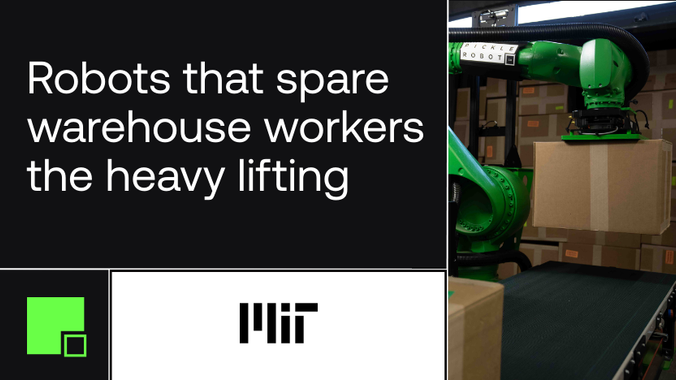
MIT News
Dec 5, 2025
Robots that spare warehouse workers the heavy lifting
Founded by MIT alumni, the Pickle Robot Company has developed machines that can autonomously load and unload trucks inside warehouses.
Article

The Information
Nov 4, 2025
Pickle Robot Wins Top Robotics Startup of 2025
The Information named us the most promising Robotics Startup of 2025 - proof that the hard problems are the ones worth solving.
Article
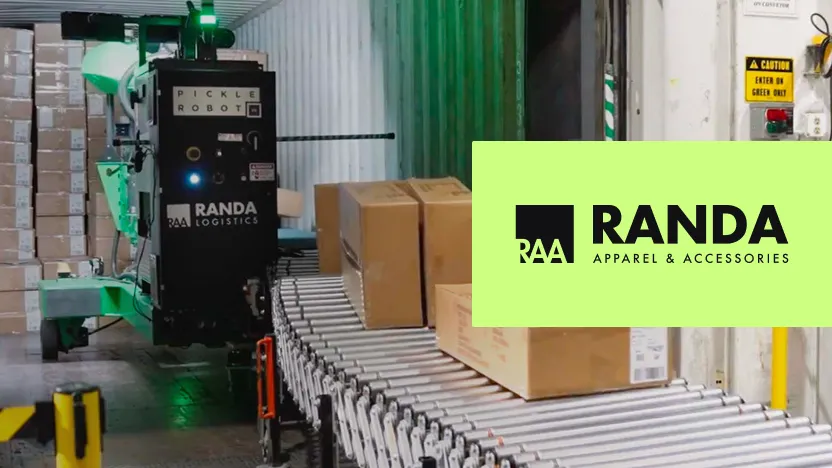
Pickle Robot
Jan 8, 2025
Pickle Robot is in Production Unloading Merchandise for Randa Apparel
Pickle Robot has been in production at Randa’s Fort Worth Logistics fulfillment center since mid-October unloading containers of products...
Press Release

Pickle Robot
Nov 19, 2024
Pickle Robot Closes $50 Million Series B Funding and Secures New Orders for 30+ Unload Robots
Read more about our latest Series B raise, with participation from a strategic customer, Teradyne Robotics Ventures, and more.
More from the world of Physical AI
Article
.jpg)
Dec 8, 2025
One-armed robot uses gen AI to unload 1,500 boxes per hour in extreme heat
Pickle’s AI-driven robots tackle one of logistics’ most punishing tasks: unloading sweltering trailers packed with heavy boxes.
Article
.jpg)
Dec 4, 2025
Robots to the Rescue
Demand for robotic truck unloading solutions builds as staffing shortages continue and company leaders seek to ease the physical burdens.
Press Release

Jun 24, 2025
Pickle Robot Hires New VP of Engineering, Adding 50 New Engineers by September
Pickle Robot, the pioneer in Physical AI automation for the supply chain, today announced Fred Hopke as its new VP of Engineering.
Article
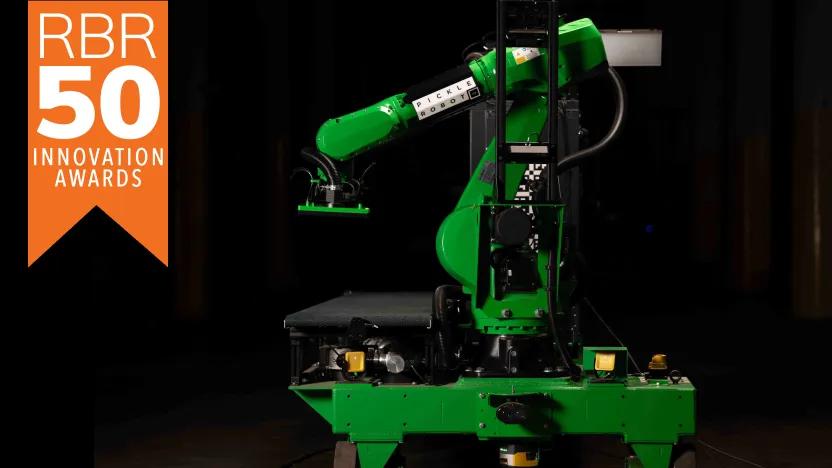
Apr 2, 2025
Pickle Robot Wins RBR50
This win by The Robot Report highlights the game-changing impact of our unloading solution, trusted by Randa Apparel & Accessories.
Article

Jan 3, 2025
Cambridge startup Pickle Robot seeks to automate the dreary work of unloading trucks
The gifts that were heaped under millions of Christmas trees last week didn’t come off a sleigh.
Article

Dec 12, 2024
Robotic Truck Unloading, Refined
Makers of robotic truck-unloading solutions are refining their offerings now that the technology is being used in many warehouses.
Article
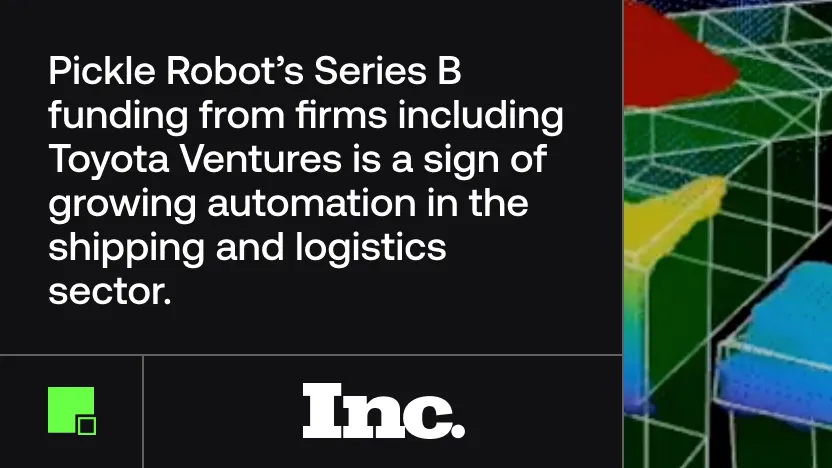
Nov 22, 2024
Pickle Robot’s Series B funding is a sign of growing automation in logistics
Article

Nov 21, 2024
Robotic truck unloading fits the classic definition of dull, dirty, or dangerous jobs worth automating.
The Cambridge, MA-based company‘s goal is to relieve scarce workers and improve productivity and safety at distribution centers globally.
Article
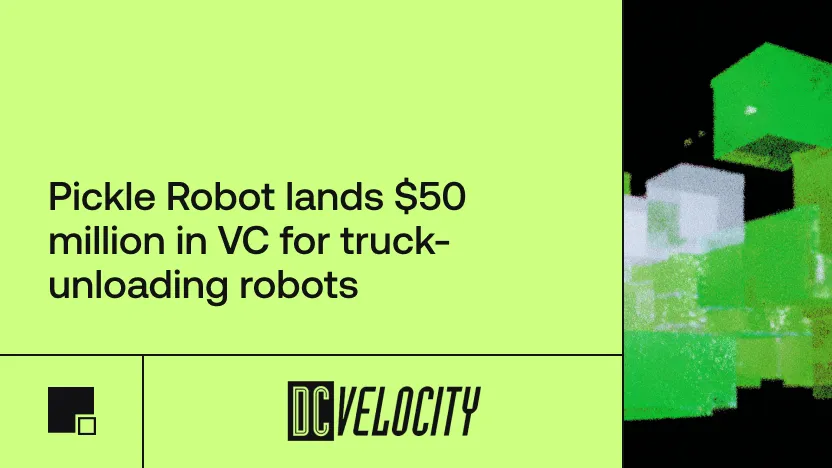
Nov 20, 2024
Pickle Robot lands $50 million in VC for truck-unloading robots
The fresh backing comes as Massachusetts-based Pickle reported a spate of third quarter orders.
Article

Nov 20, 2024
Pickle Robot Raises $50M to Transform Truck Unloading with AI
Pickle Robot, a robotics firm specializing in automating truck unloading, announced it has raised $50 million in Series B funding.
Article

Mar 20, 2024
What’d You Miss at MODEX 2024
Pickle Robot leverages an AI to dynamically select optimized case selection for container unloading.
Article
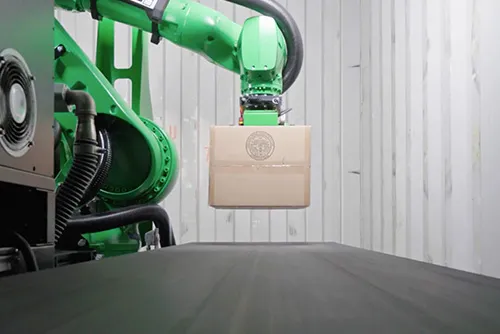
Mar 5, 2024
Autonomous container unloading systems come to the dock
Until last year, autonomous container unloading of containers and trailers was one of the remaining “holy grail” applications.
Article
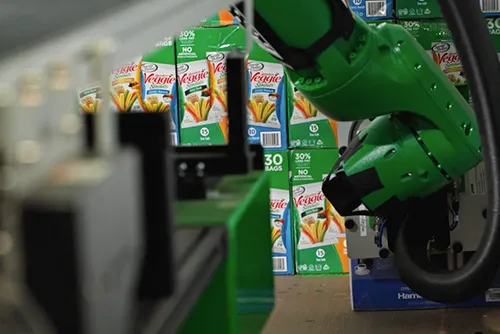
Feb 20, 2024
Logistics Solutions: Robots Step Up
The decreasing costs of hardware like sensors, actuators, and cameras will help drive down prices and spur adoption.